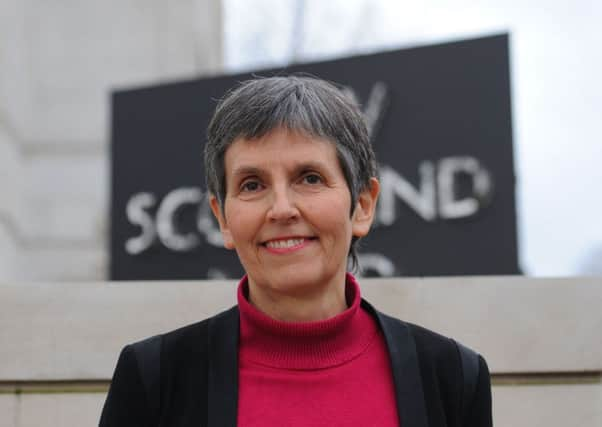Lori Anderson: Truncheon is taken to glass ceiling


The uniform was standard, stark and mildly funereal: black brogues, black tights, black knee-length A-line skirt, crisp white shirt and short dark bow tie; the outfit of a WPC in the early seventies was far from flattering, even if it was designed by Norman Hartnell, the Queen’s own dressmaker. Yet the actress Stefanie Martini wears it well, as television viewers will discover next Thursday evening when millions of them switch on ITV’s Prime Suspect 1973, to discover the crucible of casual sexism and physical abuse in which the character of Jane Tennison was formed.
The hard-bitten, quick thinking, relentless manhunter personified by the actress Helen Mirren is still decades away but Martini captures the steel in her young soul. In an interview in this week’s Radio Times the actress describes the young Jane Tennison: “She’s over-eager, has a really strong sense of what’s right and wrong, and a strong sense of justice. She’s a nerd, always studying, very focused.”
Advertisement
Hide AdAdvertisement
Hide AdThe words may describe one of the nation’s favourite TV detectives but they are just as easily applicable to the newly appointed head of the Metropolitan Police and the first female to lead the nation’s largest police force in its 188-year history. Cressida Dick may have started 10 years after Jane Tennison, in 1983, rather than 1973 but both endured the casual sexism and verbal abuse that accompanies any woman making her way in a man’s world. I’m sure it still goes on today, for only a few years ago PC Barbara Lynford, the only woman in an all-male firearms team at Gatwick Airport, talked about how her colleagues refused to sit beside her, left pornography in open view, talked openly about her breasts and read her private phone messages. Yet the fact that today a woman is the new commissioner of the Metropolitan Police, and that women also hold the top posts at the Home Office, the National Police Chiefs Council and the National Crime Agency, is evidence of a remarkable and welcome seismic shift.
In Prime Suspect, 1973 we see the young Jane Tennison asked to make the tea and do the washing up, before eventually becoming a key member of the police team hunting the killer of a young woman strangled with her bra and dumped in a basement. Cressida Dick, by contrast, was a graduate of Oxford University and worked in a chip shop then dabbled in accountancy before finally joining the Met where her intelligence, calm manner and unflappability saw her rise through the ranks. During her long career she has cracked down on gun crime among Yardie gangs, bravely admitted the Met was unlikely to ever be scrubbed clean of racism and led the counter-terrorism division.
Yet she was also the public face of a tragic police mistake. In the weeks after the 7/7 bombings in London she was in charge of Operation Kratos, developed to tackle suicide bombers. On 22 July she ordered the shooting of a suspected terrorist who had boarded an underground train at Stockwell station. He was Jean Charles de Menezes, an electrician from Brazil and an innocent man. A court case later found that while the Met had made a series of catastrophic errors, Cressida Dick was exonerated of any personal blame: she did what she believed she had to do with the information available at the time. She came close to tears at the inquest when she said: “I set out that morning to protect the people of London and to save people, the last thing I wanted to do is to have an innocent person shot. But that’s what happened. I regret it deeply. It is a terrible thing to have happened.”
There is an argument to be made that the price of ordering the fatal shooting of an innocent man should have disbarred her from leading the Met. It is an argument that the family of Mr de Menezes made this week when they described her appointment as “offensive to his memory” and sends the “message that the police officers can act with impunity”. Buffeted by a maelstrom of pain and grief, this is a perfectly understandable position but on balance I think Dick deserves the promotion, she is demonstrably capable, well respected within the force and the signal her promotion sends to thousands of female police officers, as well as a new generation of young women, is invaluable. She’s taken a truncheon to one of the last remaining glass ceilings.
There is very little known about Cressida Dick’s private life which is appropriate, what we do know is that, like DCI Tennison, Dick isn’t married, doesn’t have children and is dedicated to her job. A colleague describes how Dick attended an evening of boxing bouts between the police and the army and was comfortable swapping banter with a table full of off-duty detectives, just as we imagine Helen Mirren’s Tennison would. Yet the task facing her is unenviable as she attempts to reduce crime on a falling budget.
The appointment of Cressida Dick as commissioner of the Metropolitan Police doesn’t mean that sexism in the police is an old case that can now be closed. What it means is that all the evidence points to the problem being reduced and no longer acting as a barrier to the top job. I welcome her appointment, and so, I think, would DCI Jane Tennison.